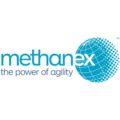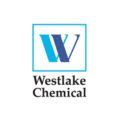Case Studies of Ion Meters in Petrochemical Industry
Ion meters are sometimes called as ion analyzers, ionic concentration gauges, ion sensing devices, ion selective meters ion detection meters, ionic strength gauges, ion electrodes, ionic measurement instruments, ionic potentiometers, ion detection instruments, ionometric analyzers, ion concentration detectors, ionometric sensors, ionic potentiation meters, ion sensitivity analyzers, etc.
Here are some practical examples of using ion meters in petrochemical industry:
Ion meters are used to monitor ion concentrations in water sources used in various processes within the petrochemical industry. This ensures that the water meets the required quality standards for use in cooling systems, boilers, and other industrial applications.
Ion meters are employed to monitor the concentration of ions in chemical reactions and processes. For instance, in acid-base reactions or in the formation of ion-exchange resins, accurate measurement of ion concentrations is essential to control reaction kinetics and product quality.
Petrochemical facilities often deal with corrosive environments due to the presence of acidic or alkaline solutions. Ion meters are used to monitor ion concentrations that contribute to corrosion, allowing for timely interventions to prevent equipment damage.
Petrochemical processes frequently involve catalysts to enhance reactions. Ion meters are used to monitor ion concentrations in catalyst solutions, aiding in catalyst performance assessment and optimization.
Ion meters are essential for quality control during the production of various petrochemical products. For example, ion concentrations in lubricants, additives, and fuel blends need to be carefully monitored to ensure product consistency and performance.
Some petrochemical processes involve desalination of brine water. Ion meters help monitor the ion concentrations in the brine and the treated water, ensuring the effectiveness of the desalination process.
Petrochemical plants generate wastewater that requires treatment before discharge. Ion meters aid in monitoring ion concentrations in wastewater streams, assisting in optimizing treatment processes and ensuring compliance with environmental regulations.
Ion meters are used to measure pH levels in various stages of petrochemical processes. Proper pH control is essential to prevent unwanted reactions, optimize yields, and ensure the integrity of equipment.
Ion meters are crucial in ion-exchange processes, where certain ions are selectively removed or replaced from a solution. These processes are used for purifying water, recovering valuable metals, and more.
In the production of polymers and plastics, ion meters help monitor ion concentrations that can affect the polymerization process, ensuring consistent product quality.
Petrochemical facilities utilize cooling towers for heat dissipation. Ion meters help monitor ion concentrations in cooling water, preventing scale formation and maintaining efficient heat transfer.
An oil refinery in Mexico uses ion meters to monitor the ion concentrations in the wastewater treatment process. This ensures compliance with environmental regulations and helps optimize the efficiency of the treatment process.
A petrochemical plant in Mexico employs ion meters to measure the concentration of corrosive ions in various process streams. By tracking ion levels, they can implement timely corrosion control measures and extend the lifespan of equipment.
A fuel blending facility in Mexico uses ion meters to analyze the ion composition of various fuel batches. This ensures consistent quality and compliance with specifications, preventing engine damage and ensuring customer satisfaction.
A European refinery uses ion meters to determine the sulfur ion concentration in crude oil. This data helps in optimizing desulfurization processes to meet stricter environmental standards for low sulfur fuels.
An industrial complex in Europe employs ion meters to monitor the levels of ions in cooling water systems. This helps prevent scaling and corrosion, which can impact the efficiency of heat exchange equipment.
A European petrochemical company uses ion meters to monitor the concentration of ions in catalytic processes. By maintaining optimal ion levels, they can maximize the efficiency of chemical reactions and reduce the production of unwanted byproducts.
























